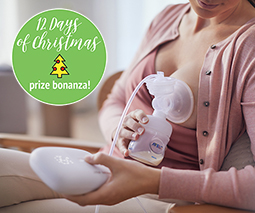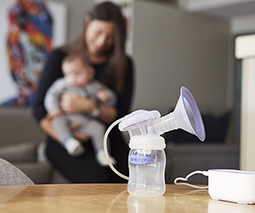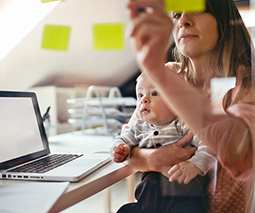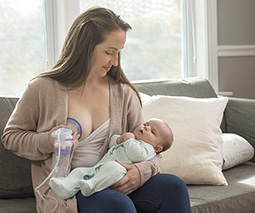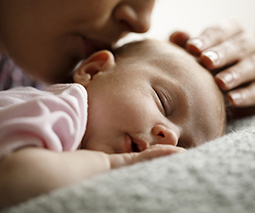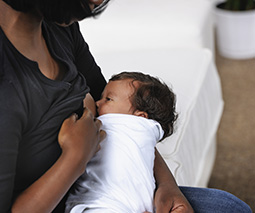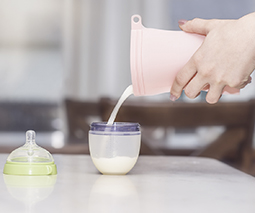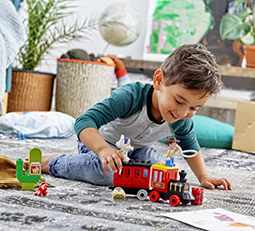This might be the reason your breastfed baby won’t take a bottle
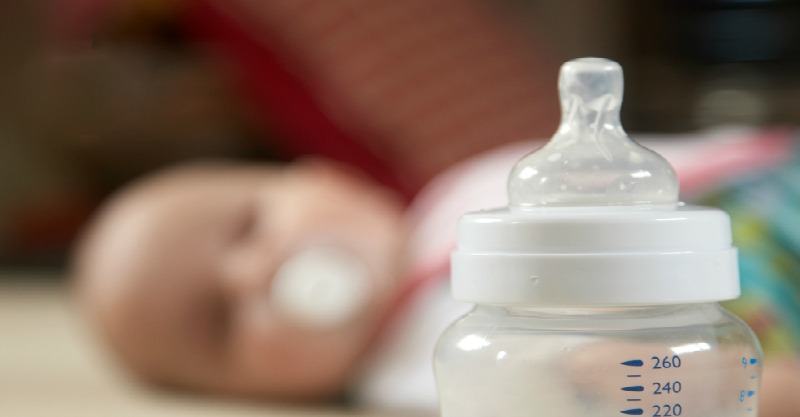
When a breastfed baby won’t take a bottle, it can cause stress for everyone in the family. The work that goes into pumping and storing breast milk in order to build up a stock for a return to work or so another person can feed your baby in your absence can be utterly frustrating – and confusing. After all, if your baby takes your milk from your breast, what’s the problem with taking it from another source?
A fellow mum has recently shed some light on her own baby’s bottle refusal – and this might just give you some clues about your baby’s bottle refusal too, especially if you’re offering him stored milk – rather than freshly pumped.
Discovering the real cause
American mum, Michelle Kraft said her baby would refuse to drink her thawed breastmilk, but would always lap up her freshly pumped milk, which had her puzzled about what was going on. After contacting her Lactation Consultant for some answers, she discovered the problem was excessive lipase in her stored breast milk.
‘I learned that I produce excess lipase,’ said Kraft in her Facebook post. ‘Lipase is an enzyme that breaks down the fats in breastmilk. When lipase occurs in excess, this process happens much more rapidly and can make the milk taste off or sour after a period of time.’
This explained why her baby would take a bottle of freshly expressed milk, but would refuse a bottle of stored breastmilk, which contained the excess lipase that altered the taste of her milk. And while lipase isn’t harmful, it can make breastmilk taste soapy or sour, rather than sweet.
How to deal with problematic lipase
The Australian Breastfeeding Association says that this problem doesn’t happen to many mums, but it tends to be an ongoing issue once it arises – so figuring out a way around it is a good idea. They recommend that mums affected by this problem should scald their milk before storing, which should decrease the lipase activity. This is the same advice Kraft was given – and it solved her bottle feeding problems.
Before this discovery, Kraft had saved over 20 litres of her milk, and was initially dismayed to realise her baby wouldn’t take it. However, after applying to be an approved breastmilk donor, she was able to have her frozen milk supply shipped to a milk Bank in Indianapolis where it could be distributed to babies who needed it.
Go on, try it – a good reason to taste your milk
So if your baby is refusing to take a bottle at your place, try tasting your stored breastmilk, and compare the taste with your freshly expressed milk. If you notice a difference, then lipase could be the issue. For more information about lipase, contact the Australian Breastfeeding Association.
If you have excess stored breastmilk, you can find out how to donate it in Australia here.

